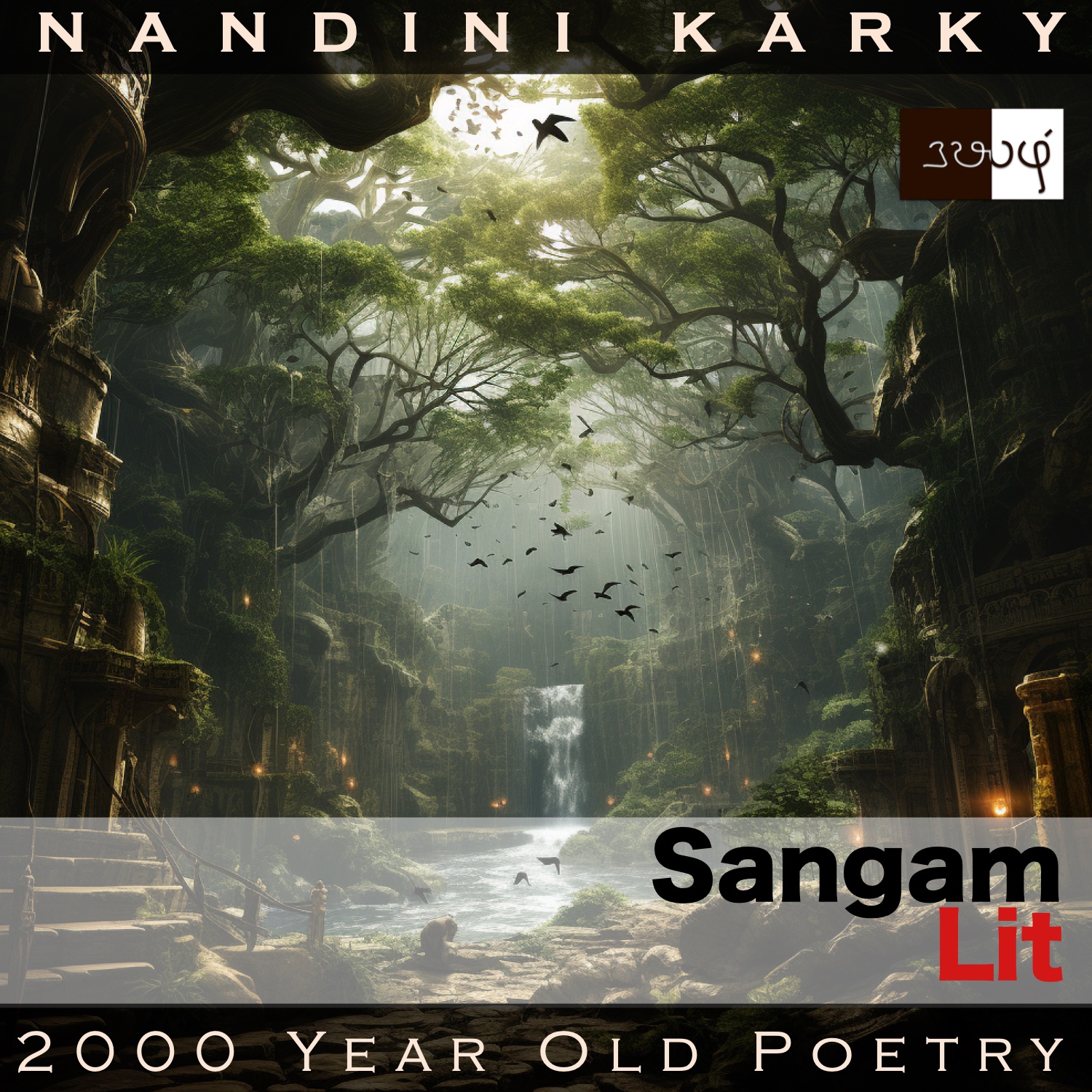Podcast: Play in new window | Download
Subscribe: Apple Podcasts | Spotify | Amazon Music | Android | iHeartRadio | Email | TuneIn | RSS | More
In this episode, we perceive the nature of supplicants, as portrayed in Sangam Literary work, Puranaanooru 199, penned by the poet Perumpathumanaar. The verse is situated in the category of ‘Paadaan Thinai’ or ‘Praise’ and speaks about the bond between patrons and those who look up to them.

கடவுள் ஆலத்துத் தடவுச் சினைப் பல் பழம்
நெருநல் உண்டனம் என்னாது, பின்னும்
செலவு ஆனாவே, கலி கொள் புள்ளினம்;
அனையர் வாழியோ இரவலர்; அவரைப்
புரவு எதிர்கொள்ளும் பெருஞ் செய் ஆடவர்
உடைமை ஆகும், அவர் உடைமை;
அவர் இன்மை ஆகும், அவர் இன்மையே.
A small and abstract verse that indirectly praises patrons in general. The poet’s words can be translated as follows:
“Without declaring, ‘Only yesterday, we ate the many fruits hanging on the curving branches of the holy banyan tree’, birds filled with merriment, go to the tree again and again. Akin to them, are supplicants, may they live long! The wealth of able men, full of valiant efforts, who receive them and render their grace, is their wealth; The poverty of those patrons is their poverty too.”
Let’s take a deeper look at these words. To convey the essence of what is in his mind, the poet brings before us, a banyan tree and the most interesting thing here is the adjective used for this tree and that is ‘God’. Did this indicate a belief of the ancients that God resided in the banyan or whether the banyan itself was a God to them or whether the tree had God-like attributes of providing and protecting? We can only wonder. Returning to the verse, the poet says in this divine banyan, fruits many hang on the branches, and birds do not say, ‘hey, didn’t we eat these fruits only yesterday?’ and avoid them, but instead, those birds seek out the tree again and again. Likewise, are supplicants, who come seeking to patrons, he connects. Then, he says the wealth and possessions of those capable men, who have achieved much, is the wealth of those supplicants and similarly, the poverty of patrons is the poverty of supplicants, the poet concludes.
What these words reveal is that poets had nothing to call their own and their happiness and sorrow was entirely dependant on whether the patrons had the wealth to offer to them or not. Note how it’s taken for granted that if patrons had the wealth, then they would automatically give to the supplicants, and if they had nothing to give, then poverty would be the state of those who came seeking. This assumption of generosity notwithstanding, isn’t it a sad state of affairs when wealth accumulates in the hands of a few and the others have to go begging for it? Imagine an earlier hunter-gatherer world, where everyone was equal and each one lived according to their abilities! Doesn’t that seem egalitarian when compared to this changed world of skewed wealth distribution? Poetry that makes us reflect on the economics of the times!




Share your thoughts...